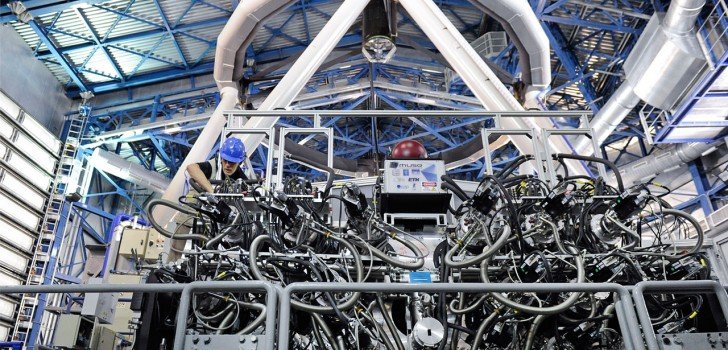A two year old girl from Thailand was cryogenically frozen in the hopes that science will one day be able to bring her back to life. She is the youngest person ever to receive this type of treatment.
Two year old Matheryn Naovaratpong, who was nicknamed Einz, developed a rare form of brain cancer shortly after she turned two years old. Nearly a year later, she died from the disease.
Not knowing what else to do, her parents made the decision to have their daughter cryogenically frozen.
Einz’s father Sahatorn Naovaratpong says, “The first day Einz was sick, this idea came to my mind right away that we should do something scientifically for her, as much as is humanly possible at present. I felt a real conflict in my heart about this idea, but I also needed to hold onto it. So I explained my idea to my family.”
In some cases, a person’s entire body is frozen. However, in this case, scientists only froze Einz’s brain.
Her brain was put into a deeply frozen state, and it will remain that way until a possible point in time where major advances in medical technology would allow Einz to be revived and have a new body created for her.
Scientists have no idea when, or even if, this time point will occur, but Einz’s parents are extremely confident that it will.
Sahatorn says that it was difficult for him to initially convince the rest of their family to accept the idea, but he says that they changed their minds as the health of Einz got worse.
At first Sahatorn said it was difficult for the rest of the family to accept this idea, but as Einz’s health deteriorated, they came round.
Science was also a big part about the way Einz came into the world, as the girl was conceived using in-vitro fertilization. Now her parents are hoping that science will one day be able to save her.
The family selected the non-profit organization of Alcor to undertake the cryogenic procedure. The family was heavily involved in the preparations, including the transfer of their daughter from Thailand to Alcor’s facility in Arizona.
The process of protecting her brain began immediately after Einz was declared to be dead. Einz is the 134th patient of Alcor, and by far the youngest.
Her brain is currently being preserved in Arizona at a temperature of approximately negative 321 degrees Fahrenheit.
Sahatorn says that he made the decision to freeze his daughter’s brain because he and his wife cherished their daughter so much that they wanted to do anything to give her a possible second chance at life.
“I tell you we still feel our love for her. Although we fought to be strong, when she had passed away, we were no different from other families; we cried every day. We still need time to heal,” he said.
Sahatorn and his wife are also planning to have their own bodies cryogenically preserved after they die. However, Sahatorn admits that it is unlikely that they will ever meet Einz again, even if their plans are successful.
That being said, it could be hundreds or even thousands of years before that ever happens.
Stay Connected